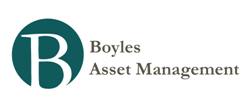Easy Money, Hard Truths – By David Einhorn
Are you worried that we are passing our debt on to future generations? Well, you need not worry.
Before this recession it appeared that absent action, the government’s long-term commitments would become a problem in a few decades. I believe the government response to the recession has created budgetary stress sufficient to bring about the crisis much sooner. Our generation — not our grandchildren’s — will have to deal with the consequences.
…..
While one can debate where we are in the recovery, one thing is clear — the worst of the last crisis has passed. Nominal G.D.P. growth is running in the mid-single digits. The emergency has passed and yet the Fed continues with an emergency zero-interest rate policy. Perhaps easy money is still appropriate — but a zero-rate policy creates enormous distortions in incentives and increases the likelihood of a significant crisis later. It was not lost on the market that during this month’s sell-off, with rates around zero, there is no room for further cuts should the economy roll over.
EASY money has negative consequences in addition to the risk of inflation and devaluing the dollar. It can also feed asset bubbles. In recent years, we have gone from one bubble and bailout to the next. Each bailout has rewarded those who acted imprudently. This has encouraged additional risky behavior, feeding the creation of new, larger bubbles.
The Fed bailed out the equity markets after the crash of 1987, which fed a boom ending with the Mexican crisis and bailout. That Treasury-financed bailout started a bubble in emerging market debt, which ended with the Asian currency crisis and Russian default. The resulting organized rescue of Long-Term Capital Management’s counterparties spurred the Internet bubble. After that popped, the rescue led to the housing and credit bubble. The deflationary aspects of that bubble popping created a bubble in sovereign debt, despite the fiscal strains created by the bailouts. The Greek crisis may be the first sign of the sovereign debt bubble bursting.
Though we don’t know what’s going to happen next, the good news for our grandchildren is that we will have to face our own debts. If we realize that our own future is at risk, we might be more serious about changing course. If we don’t, Mr. Geithner and others might regret having never said never about America’s rating.
....................
Related link: David Einhorn's Ira Sohn Presentation
- John Mauldin: Unintended Consequences
Let me introduce Mauldin's Rule of Thumb Concerning Unintended Consequences: For every government law hurriedly passed in response to a current or recent crisis, there will be two or more unintended consequences, which will have equal or greater negative...
- Robert Huebscher Interviews Vitaliy Katsenelson
Paul Krugman wrote about China in his New York Times column last Monday. That’s a topic that you have researched closely. He said that "China’s story just sounds too much like the crack-ups we’ve already seen elsewhere," referring to the financial...
- Hussman Weekly Market Comment: "illusory Prosperity" - Ludwig Von Mises On Monetary Policy
Illusory Prosperity - Ludwig von Mises on Monetary Policy"Credit expansion cannot increase the supply of real goods. It merely brings about a rearrangement. It diverts capital investment away from the course prescribed by the state of economic wealth...
- Hussman Weekly Market Comment: Oil And Red Ink
From earlier this week. Similarly, before the housing crisis, it might have been tempting to shrug off mortgage defaults as relatively isolated events, since the price of housing had generally experienced a long upward trend over time. Indeed, historically,...
- Credit Crisis - Robert Rodriguez, Fpa Funds
To begin with, I believe FPA Capital Fund and FPA New Income are well structured to weather this credit-crisis storm. FPA Capital stands with nearly 43% in liquidity that we believe should help it withstand the crisis and provide us with the necessary...

